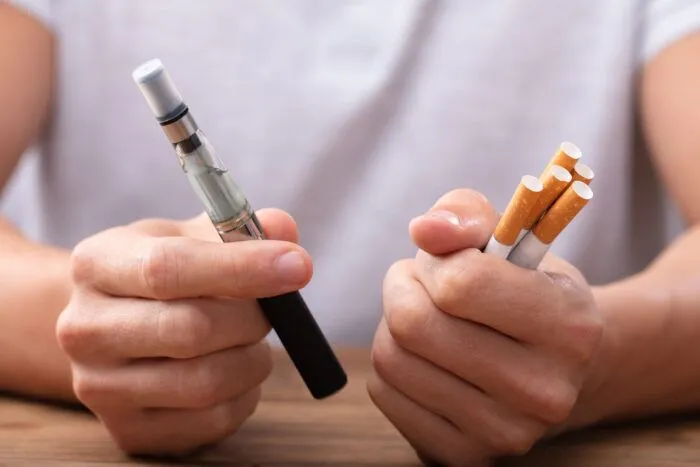Are smoking Banned in Florida? What Smokers and Parents Should Know

Vaping regulations in Florida create confusion for smokers, parents, and retailers who aren’t sure what’s legal and what isn’t under current state laws. The regulatory landscape keeps changing as lawmakers respond to health concerns and youth vaping trends that continue evolving rapidly.
The truth about whether are vapes banned in Florida is more nuanced than simple yes-or-no answers suggest, with different rules affecting adults, minors, and various product types. Laws target specific aspects of vaping while allowing others to continue legally, creating a complex framework that requires careful attention to details.
Understanding current regulations helps clarify confusion for smokers considering alternatives, parents worried about teen vaping, and retailers trying to comply with evolving legal requirements. Smart consumers and business owners stay informed about these changes rather than assuming old information remains accurate.
Florida’s Current Vaping Regulations
Adult vaping remains legal in Florida for people 21 and older, with retailers allowed to sell approved vaping products to qualified customers who provide proper identification. These sales must comply with federal FDA regulations alongside state requirements that govern where and how products can be sold.
Flavored vape restrictions target products that appeal primarily to minors, with limitations on certain flavoring categories while allowing tobacco and menthol options for adult consumers. These restrictions aim to reduce youth appeal without completely eliminating adult choice in legal vaping products.
Online sales face additional restrictions designed to prevent underage purchases, requiring age verification systems and shipping restrictions that make internet vape purchases more complicated than traditional retail transactions. These digital safeguards attempt to close loopholes that minors previously exploited.
Public vaping restrictions mirror smoking bans in most locations, prohibiting vaping in restaurants, workplaces, and public buildings while allowing it in designated areas. These restrictions treat vaping similarly to traditional tobacco products for public health and comfort considerations.
How Laws Differ for Minors vs. Adults
Zero tolerance policies for underage vaping include criminal penalties for minors caught with vaping products, regardless of whether they were actually using them at the time of discovery. These strict approaches treat underage vaping as seriously as underage drinking in many jurisdictions.
Purchase penalties for adults who buy vaping products for minors include substantial fines and potential criminal charges that can affect employment and professional licenses. These laws hold adults accountable for enabling underage vaping through straw purchases or gift giving.
School-based enforcement often results in suspension or expulsion for students caught with vaping products on campus, even if no actual vaping occurred. These zero-tolerance approaches prioritize deterrence over rehabilitation in most school districts.
Parental notification requirements mean that schools must inform parents when students are caught with vaping products, creating family consequences that extend beyond school disciplinary measures. These notifications often surprise parents who weren’t aware of their children’s vaping activities.
The Flavored Vape Debate in Florida
Youth appeal concerns drive most flavored vape restrictions because data shows that minors gravitate toward sweet and fruity flavors rather than traditional tobacco tastes. Public health advocates argue that these appealing flavors serve as gateway products that hook young people on nicotine.
Adult preferences for flavored products create political tension between protecting youth and preserving adult choice in legal products. Many adult vapers prefer flavored options and argue that restrictions punish legal users for problems caused by illegal underage access.
Enforcement challenges arise because flavor restrictions are difficult to monitor and enforce consistently across thousands of retail locations. Determining which flavors are prohibited requires subjective judgments that create confusion for both retailers and enforcement officers.
Legal gray areas exist around custom mixing and flavor additives that might technically comply with restrictions while still providing appealing tastes. These loopholes complicate enforcement efforts and create competitive advantages for businesses willing to push regulatory boundaries.
What Parents Should Watch for With Teens
Warning signs of teen vaping include sweet smells on clothing, increased thirst, and possession of small electronic devices that might be mistaken for USB drives or other innocent technology. Modern vaping devices are designed to be discreet and easily concealed from adult supervision.
Social media monitoring reveals vaping culture influences through platforms where teens share vaping tricks, product reviews, and normalization content that makes vaping seem harmless and socially acceptable. These online influences often counteract parental guidance about vaping risks.
Academic performance changes sometimes correlate with nicotine addiction from vaping, as withdrawal symptoms during school hours can affect concentration and behavior. Teachers and counselors may notice changes before parents become aware of vaping habits.
Health symptoms in teen vapers can include respiratory issues, sleep problems, and mood changes related to nicotine addiction that develops more quickly in adolescents than adults. These symptoms often get attributed to other causes before vaping is discovered as the underlying issue.
Conclusion
Florida hasn’t implemented a complete vaping ban, but restrictions continue evolving as lawmakers balance public health concerns with adult choice and business interests. The regulatory framework targets youth access and appeal while preserving legal options for adult consumers.
Current laws create compliance challenges for retailers and confusion for consumers who must navigate changing requirements that differ from federal regulations. Staying informed about these changes helps avoid legal problems while making informed decisions about vaping products.
Parents, smokers, and business owners should expect continued regulatory evolution as public health data develops and political priorities shift regarding vaping’s role in tobacco harm reduction versus youth protection concerns.



